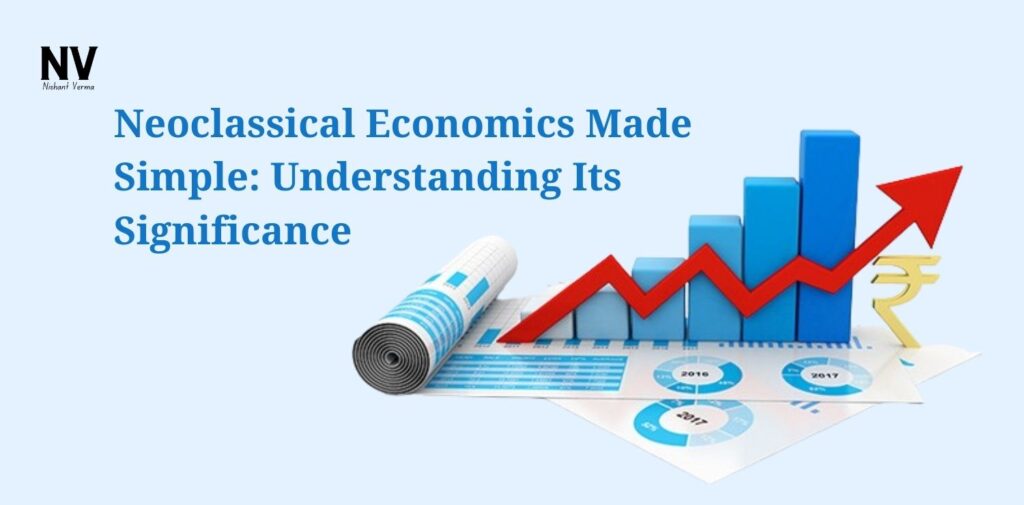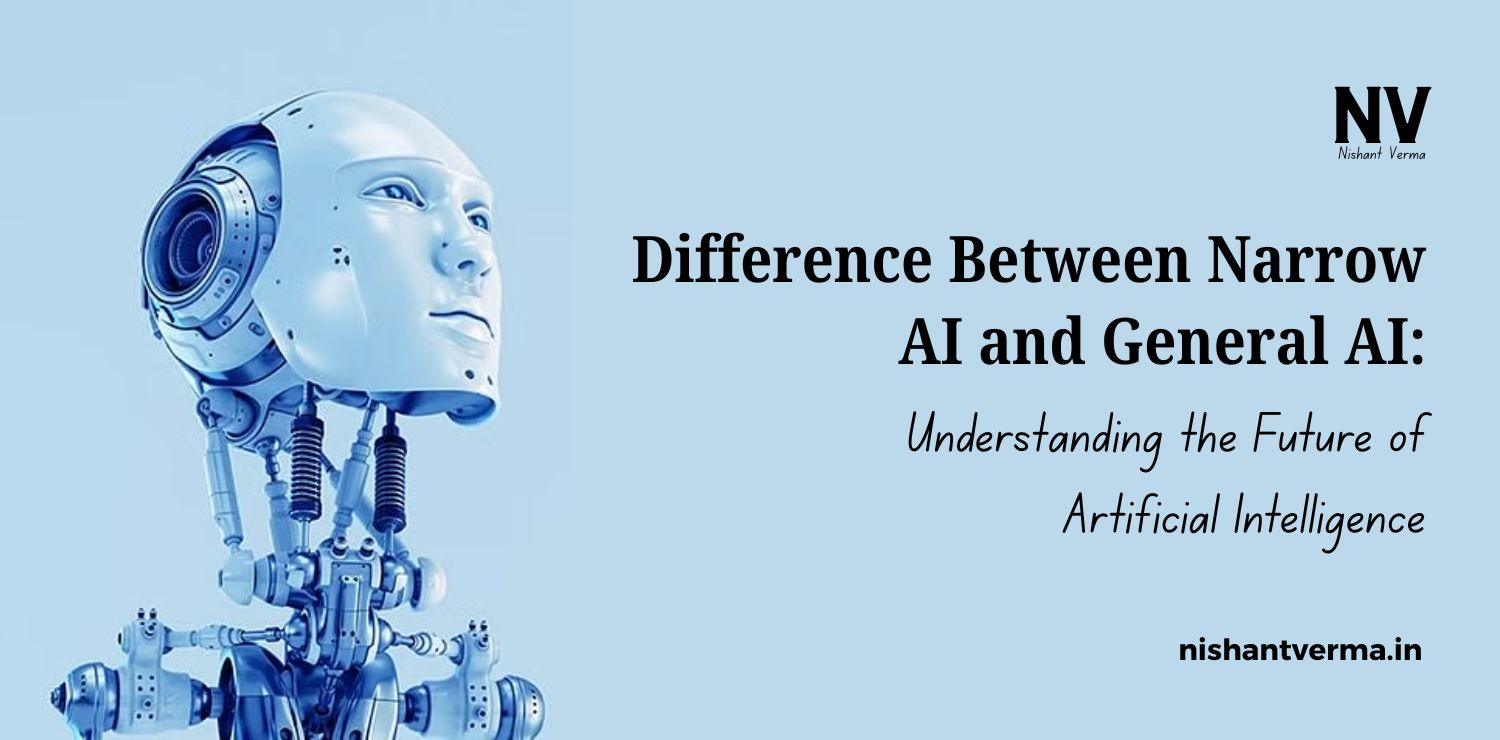Neoclassical economics is a bit like a map for figuring out how money and buying things fit together. Imagine it’s a special tool that helps us understand why people decide to buy stuff and how the places where we shop, known as markets, actually work. Now, in this article, we’re going to take this economics stuff and make it super easy to understand. Plus, we’ll explain why it’s so important for making sense of the world around us.
Think of neoclassical economists as a user manual for the economy. It’s like having the inside scoop on why people buy the things they do and how the whole buying and selling dance happens in the marketplace. If we break down these ideas step by step, it’s like putting together a puzzle where all the pieces fit perfectly.
Now, you might be wondering why this is such a big deal. Well, imagine you have a treasure map, and it leads you to hidden gems. Neoclassical economists are a bit like that map, helping us find the hidden treasures in our economy. It’s important because it helps us understand why people make certain choices and how our shopping decisions affect the world.
So, let’s set sail on this adventure of understanding neoclassical economics, and by the end of this journey, you’ll see how these ideas can light the path to a better understanding of the world we live in.
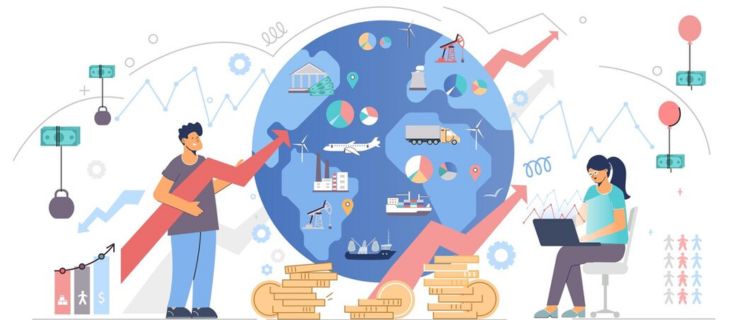
What Is Neoclassical Economics?
Okay, let’s break down economics into simple terms. Neoclassical economics is like a guidebook that helps us understand how people and businesses decide what to buy and sell. It’s a bit like trying to figure out why your friends choose one toy over another.
In this world of economics, we have a special idea: people are like super-smart shoppers. They aim to make themselves as happy as possible with the stuff they buy. We call this happiness “utility.” Imagine it as the feeling you get when you find your favourite ice cream flavour at the store. Economics believes that people are really good at making choices that bring them joy, like picking the ice cream that makes them happiest.
But here’s the twist – in this economic theory, it’s assumed that people know everything about the ice cream flavors they like. In other words, they have all the info they need to pick the perfect one. So, if you’re a neoclassical economist, you’d believe that people have this magical ability to know everything about all the ice cream flavors in the world. It’s like having a superpower of perfect information.
Now, let’s put all of this into a simple story. Imagine you’re at the store, and you want to buy a toy. You know exactly what you like, and you want to make sure you’re as happy as can be with your choice. economics says you’re really good at picking the best toy for you because you have all the info you need. It’s like being a toy expert!
So, in a nutshell, neoclassical economist tells us that people are like super-smart shoppers who aim to be as happy as possible when they buy things. They make decisions based on what they know and what makes them the happiest.
This idea is a bit like a superhero’s secret power, helping us understand why people buy what they do and why they do it. It’s important to know this because it forms the foundation for lots of other economic ideas. So, remember, in the world of economics, we’re all superheroes of smart shopping!
The Role of Supply and Demand
Role of Supply and demand are two key ideas in economics. Supply is how much of a product or service is available, and demand is how much people want it. In this theory, prices are determined by the balance between supply and demand. When supply goes up, prices tend to go down, and when demand rises, prices tend to go up.
Rational Choice Theory: Economics assumption
Economics assumes that people are rational decision-makers. This means they make choices that will make them as happy as possible, given the information they have. They weigh the costs and benefits of each choice before deciding.
Markets and Competition
Economics emphasizes the importance of competitive markets. In these markets, many buyers and sellers interact, leading to lower prices and better products. This competition is believed to be a good thing because it helps allocate resources efficiently.
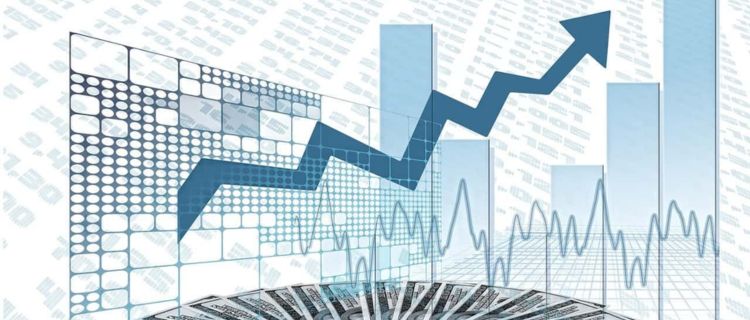
Importance of Marginal Analysis
Marginal analysis is a concept in economic ideas that looks at the additional benefit or cost of producing one more unit of a good or service. By comparing these marginal benefits and costs, businesses and individuals can make better decisions.
Role of Incentives
Incentives matter a lot in economics. People respond to rewards and penalties. If there’s a financial incentive to do something, people are more likely to do it. Understanding these incentives helps economists and policymakers shape behaviour.
Criticisms of Neoclassical Economics
Economics is not without its critics. Some argue that it doesn’t account for human irrationality and that it assumes people have too much information. Others point out that it can lead to income inequality and ignore important social and environmental issues.
Economics in Practice
Neoclassical economics is used in many real-world situations, such as government policies, business strategies, and personal decision-making. It has a big impact on how we understand and shape our economy.
Economics and Policy: Neoclassical Economist
Governments often use economic ideas to make decisions about things like taxes, regulations, and trade policies. These policies aim to promote economic growth and stability.
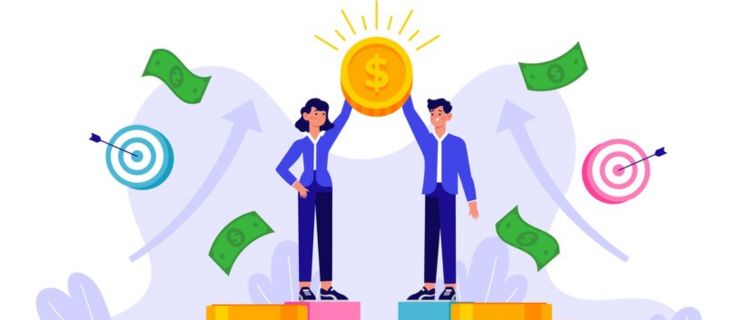
How Neoclassical Economics Shapes Our World
In many ways, what economics is the foundation of our modern economic system. It guides how we think about money, markets, and individual choices. Understanding these principles can help us navigate the world around us.
Conclusion
Neoclassical economics is a powerful tool for understanding how people and businesses make choices and how markets work. It helps us think about the decisions we make in our daily lives and how they impact the world around us. While it has its critics and limitations, it remains a fundamental part of our economic thinking and policymaking. By simplifying and breaking down these ideas, we hope you now have a better grasp of what economics is and why it’s important.

